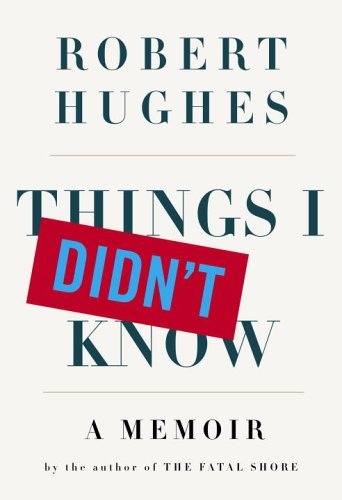What do you think?
Rate this book


416 pages, Hardcover
First published June 2, 2005
Noted art critic Robert Hughes has lived a writer's life, and here he relives his dramatic career. Although he relates key events__his car crash, his two unhappy marriages (and a third good one), and his son's suicide__Hughes focuses, instead, on the fascinating informal education that made him "completely an elitist, in the cultural but emphatically not the social sense." Despite his description of himself, a few critics caught a whiff of elitism in Hughes's jabs at other artists and pop culture. Others disagreed about aspects of the prose and storytelling. To some, Hughes's discussion of 1960s London formed the heart of the memoir; the Los Angeles Times, by contrast, called it a "joyless account of druggy self-indulgence." Readers interested in the intellectual growth of an art critic, however, will find much to savor in this memoir
This is an excerpt from a review published in Bookmarks magazine.